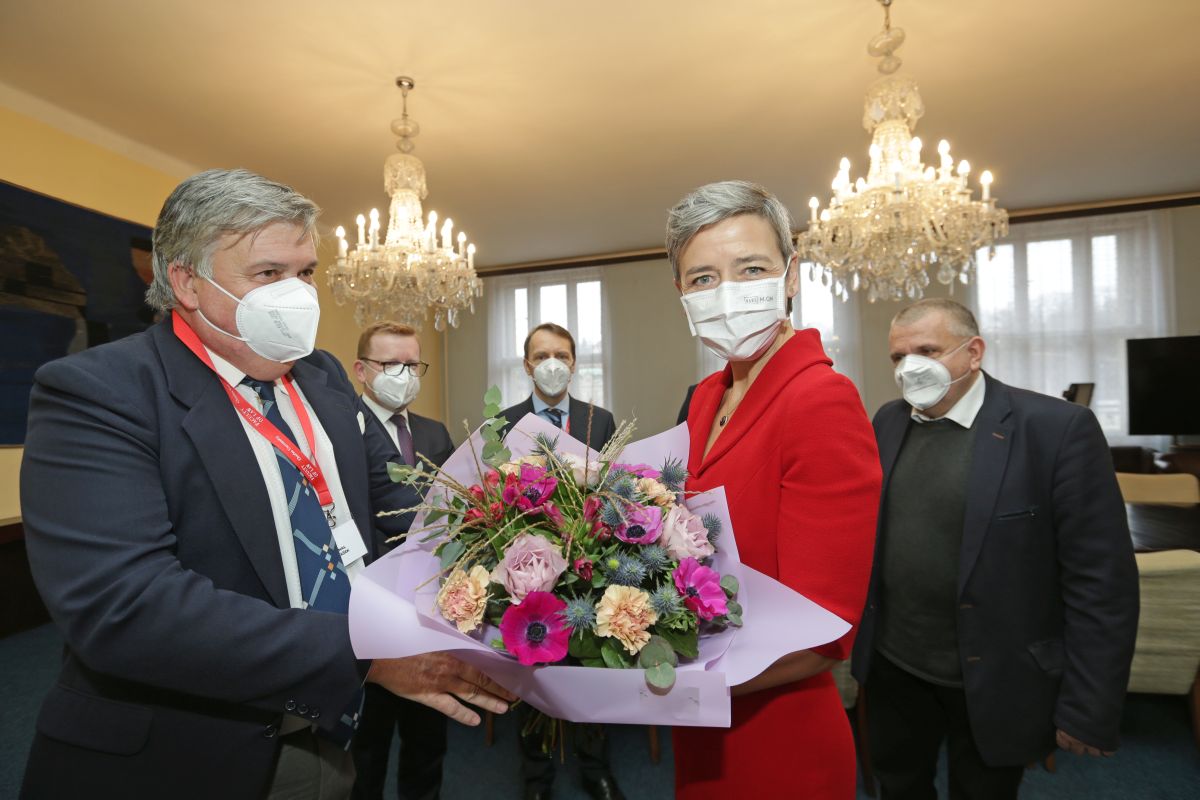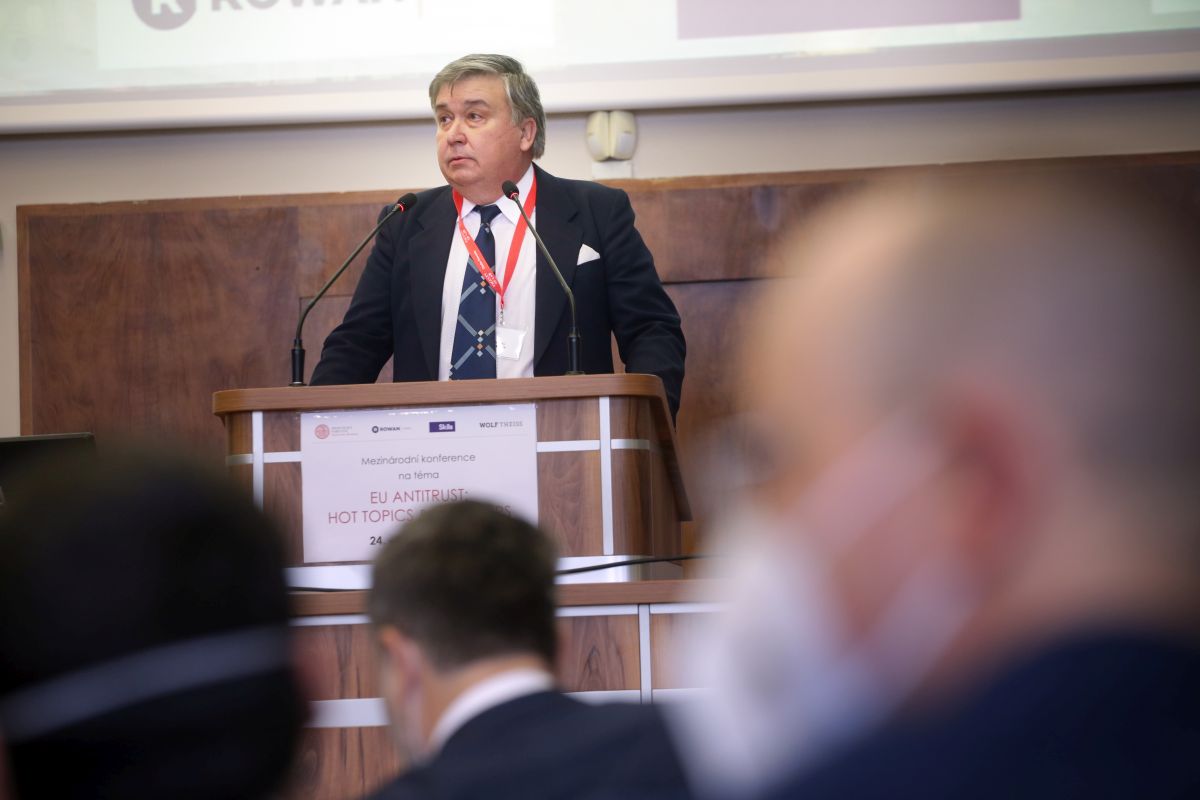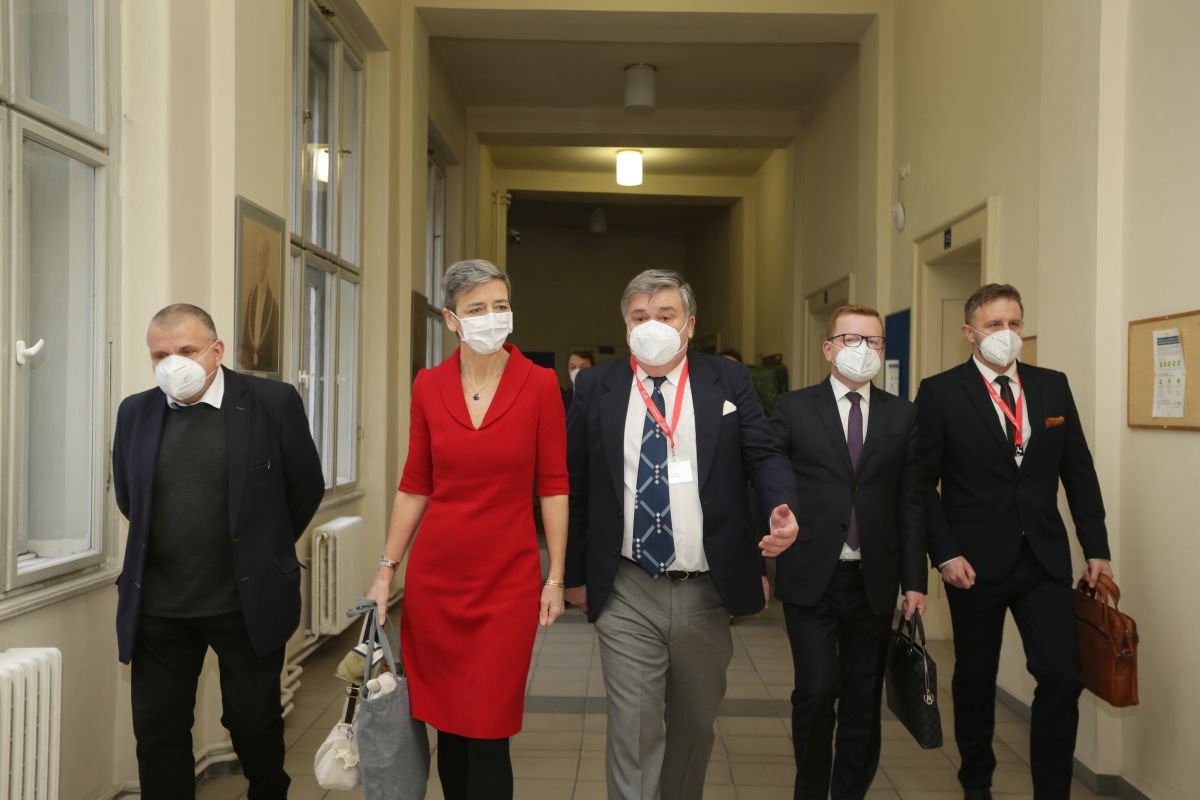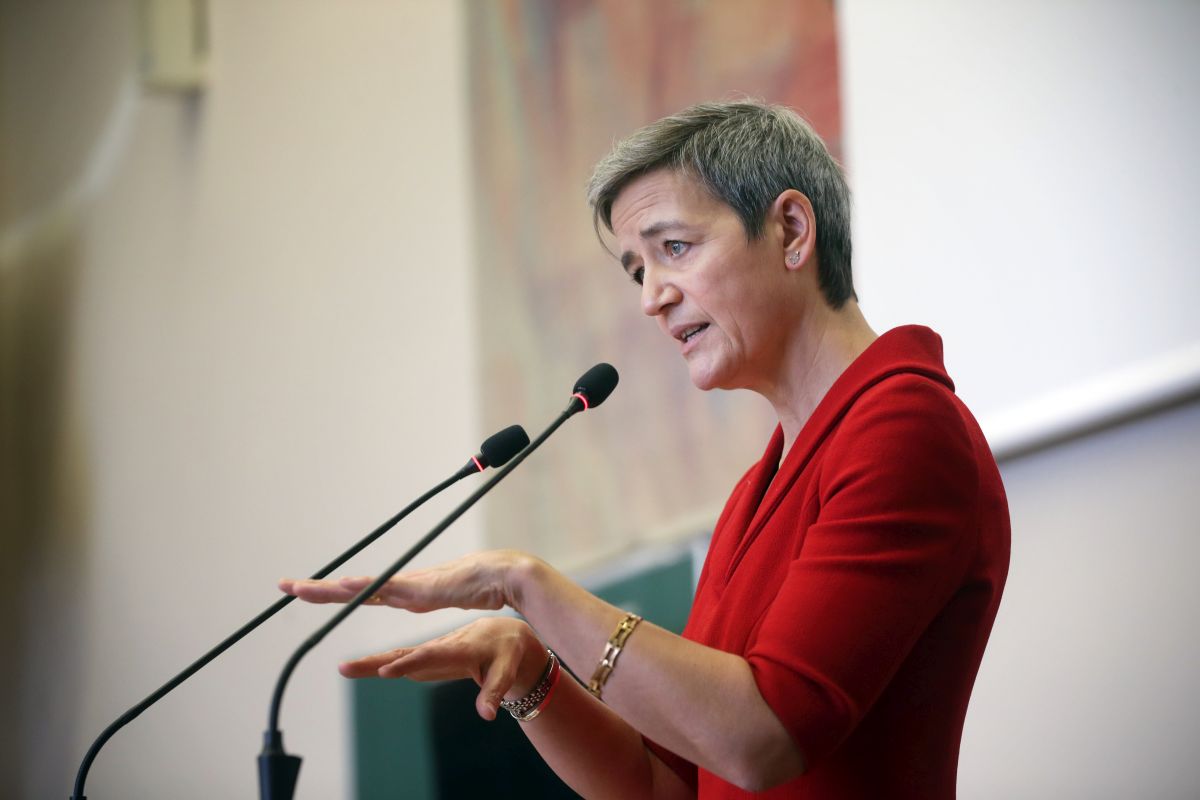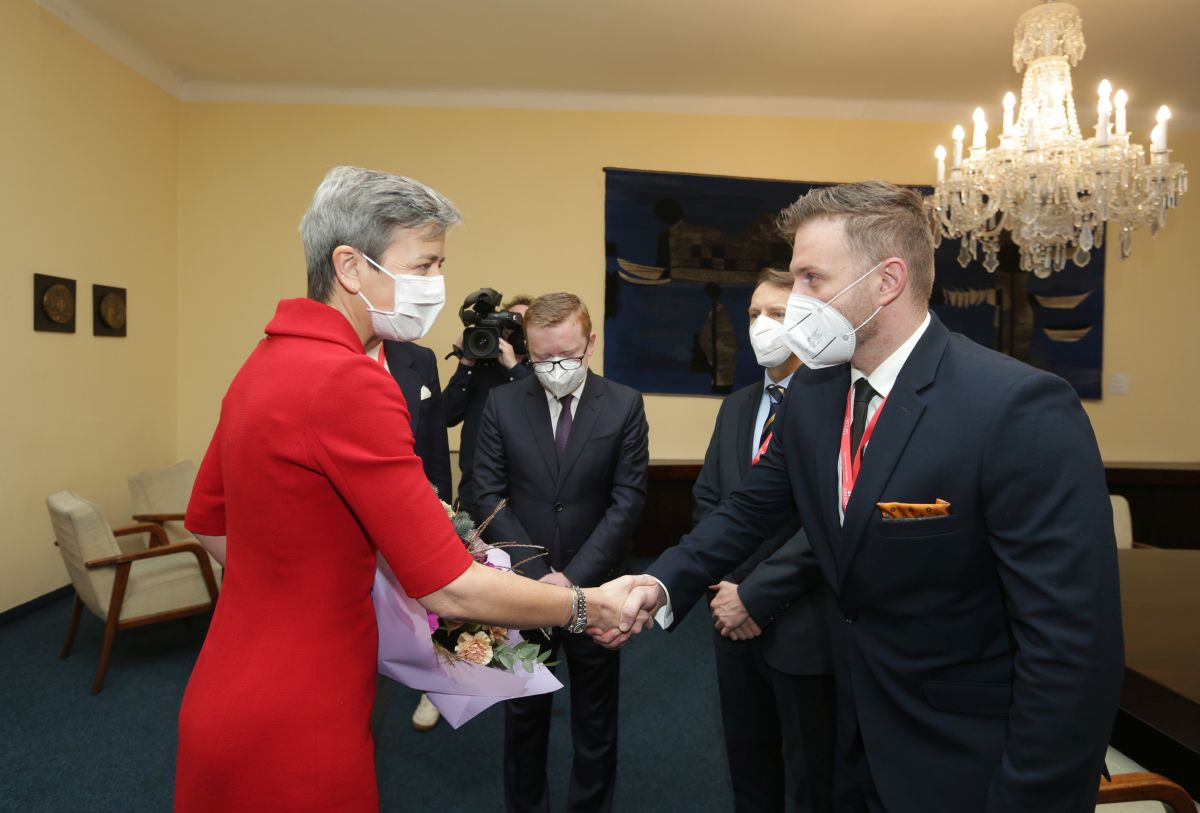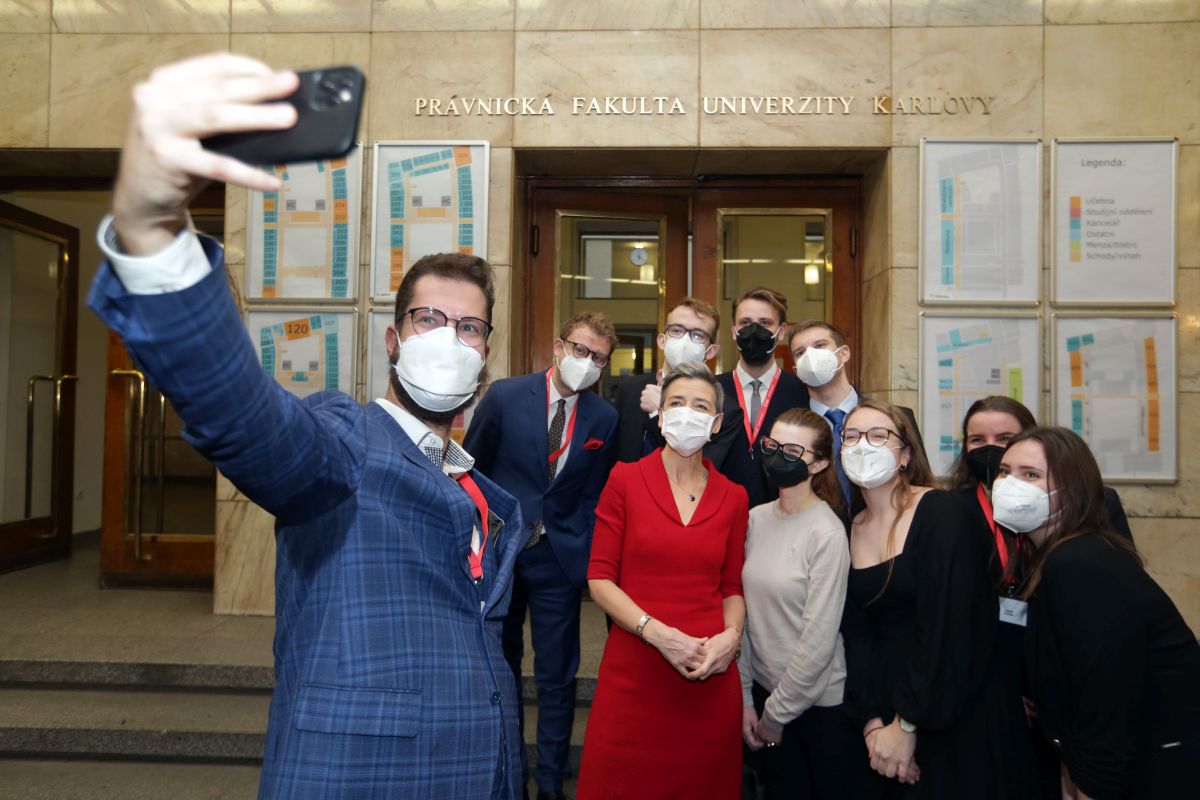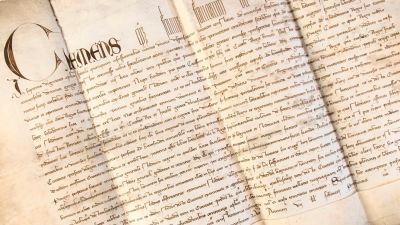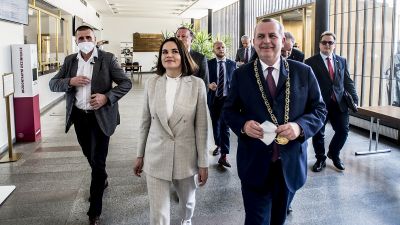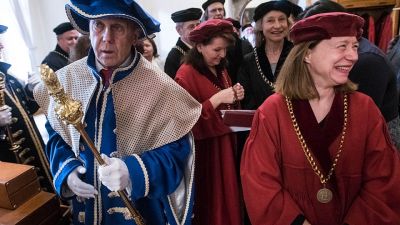She has been called a dragon slayer and the world’s most famous regulator, but also a democrat dedicated to fairness and a level playing field in markets paving the way for innovation and greater sustainability and a champion of transparency: Danish politician Margrethe Vestager, the executive vice-president of the EC for digital transformation and Europe’s anti-trust commissioner. Both competition law and regulation as well as digital transformation were topics at a conference that opened at the Faculty of Law at Charles University on Monday, January 24, where Vestager was a special guest and the keynote speaker. In the afternoon, she was also recipient of a gold medal from Charles University’s outgoing rector, Tomáš Zima, recognising her “extraordinary contribution to the protection of competition and the associated freedom of economic decision-making as an integral part of the political system of a free society.”
When it comes to Euro commissioners Vestager has long been one of the best-known, making a mark in cases against Google or Apple and the case for regulation and a guiding hand so that competition remains level and robust for smaller players with innovative and new ideas. The commissioner famously quipped in a past Ted Talk that “Europe was open for business – not tax evasion”, reinforcing the view that competition rules and enforcement were needed to protect competition “on its merits.” Vestager has spoken often and clearly about the need to keep the playing field fair and not undercut by questionable practises that both unfairly distort markets but also lead to a decay in the public’s trust (not only in industry or business but in governments themselves when they over-subsidize or offer disproportional tax incentives, favouring some players over others. In other words, when they provide unfair deals).
After being introduced by the faculty’s Michal Tomášek, Vestager opened her keynote at Charles University by reminding visitors of its founding in 1348, drawing a comparison with a time when Europe was hit by the worst plague in history and the difficulties of today (with the second year of the Covid pandemic drawing to a close). In doing so she drew inspiration from the university’s founder, Charles IV, who in uncertain times, sewed seeds of promise.
“Europe was in the grip of the worst pandemic in history… uncertain times. Not the sort of time that you would think people would be thinking about the future. And yet the Emperor Charles IV was doing just that: thinking about the future. He wanted to found a lasting home for learning and for scholarship here, in his homeland. And almost 700 years later I think it’s fair to say that he succeeded. And at the start of this new year, I think that story can be an inspiration to every one of us. It can remind us that even in the worst of times, you can still plant the seeds for better things that can last for a very long time.”
The comparison was a springboard for discussing the enormous challenges we face at present: how to tackle climate change and promote real sustainability, areas where the commissioner said, the EC wanted industry to take the lead. Not least in two areas Vestager is invested in most: the transformation to green economies (the European Green Deal) and the digital future. In her speech, she outlined 2022 optimistically as a year when many of the foundations for those goals would be set, with additional legislative proposals but also a thorough revision of current regulations part of the process. All in the aim of backing strong industry and competition for a greater good, with regulators careful not to play a detrimental role. Vestager explained:
“More competition means more pressure on companies to use their resources in an efficient manner. To meet a growing demand for green products. For green processes. For a resource consciousness. At the same time, sometimes it’s important for companies to cooperate to get it right and we don’t want out anti-trust rules to come between legitimate cooperation and companies. So the new guidelines on horizontal agreement between competitors that we hope to adopt this year, well we plan to give more guidance as to how companies can make sure that sustainability agreements can actually be done, without fear that a competition regulator will come knocking on their door.”
At another point in her presentation at the Faculty of Law on Monday, the commissioner expressed the hope that listeners “could hear that 2022 would be busy”, stressing that only action taken now would keep the door open for a better future – one of climate neutrality by 2050 and a cutting of net emissions by 55 percent by 2030. To do that, she emphasised that European industry needed to be strong. It had to be, she suggested, in order to be able to ensure significant change.
Rounding out her address, Margrethe Vestager discussed how the last two years under Covid had been difficult but that some of the worst-case scenarios (what she called “a tsunami of insolvency”) had not come to pass, that governments remained committed without unbalancing markets. Europe, she said, had faced and come through even worse in the past, and she expressed confidence [Europeans] would come through this, placing importance on the need “to adapt” and the need to act, for future generations.
“We need to build a greener European economy. Climate change doesn’t wait for us to get over the pandemic or wait for us to be ready for it. It’s happening right now. And I do hope that you share my sense of urgency. This is for us, now. It is for our generation to do something about it, to ensure to those who come after that we really did try to do the right thing.”
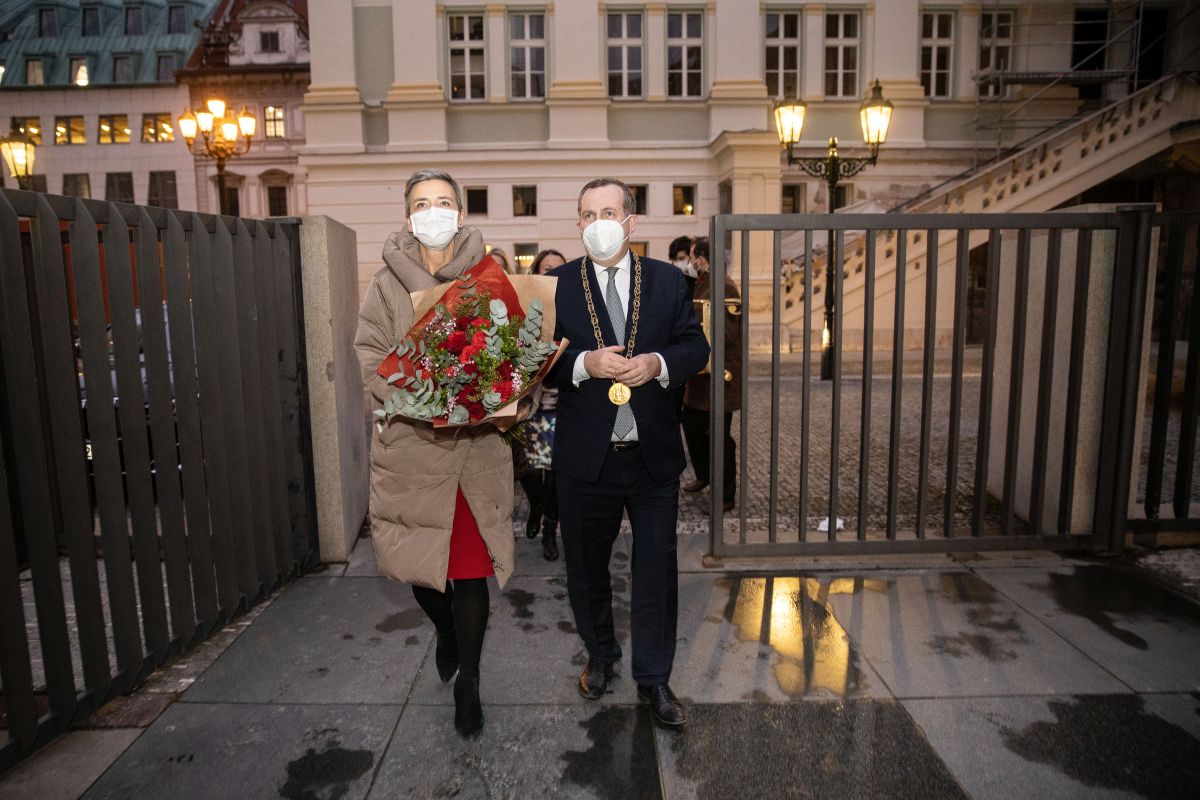
Vestager arrives at the Carolinum and is greeted by Rector Tomáš Zima. 24 January 2022.
Later on Monday afternoon, the EC executive vice-president was welcomed to the historic Carolinum by Rector Tomáš Zima, where he awarded Vestager the university’s gold medal for her work. She was especially pleased the award acknowledged the importance of competition protection as central to free society. Afterwards, Forum asked the commissioner how strongly industry was responding to her appeal to take leading roles when it came to the greening of the economy and digitisation ahead.
“You know, in the first year of the pandemic we didn’t know what would happen. And we were kind of worried. What would happen to the Green Deal? How could we find climate change in the midst of a pandemic? And the first ones to come and knock on our doors, who said ‘You stick to your strategy’ was industry. They said ‘We have mentally passed the bridge, we are making plans to make the most out of this, so don’t you change the strategy, move on and do what you need to do. By changing to electricity, by giving us new rules, by making sure we have fair competition in doing so, by investing in research and development and innovation and we will stay on target.
“Of course there are businesses that said ‘Oh my god, this is difficult!’ That didn’t want to do it. But you know, things are changing. Industry is not only coming on board, they are challenging us to make sure that they have the right framework to do what they want to do, in order to make the most of it. Because, fighting climate change is not only about adapting – it also presents new possibilities. And since Europe is first, why shouldn’t European industry take the lead?”
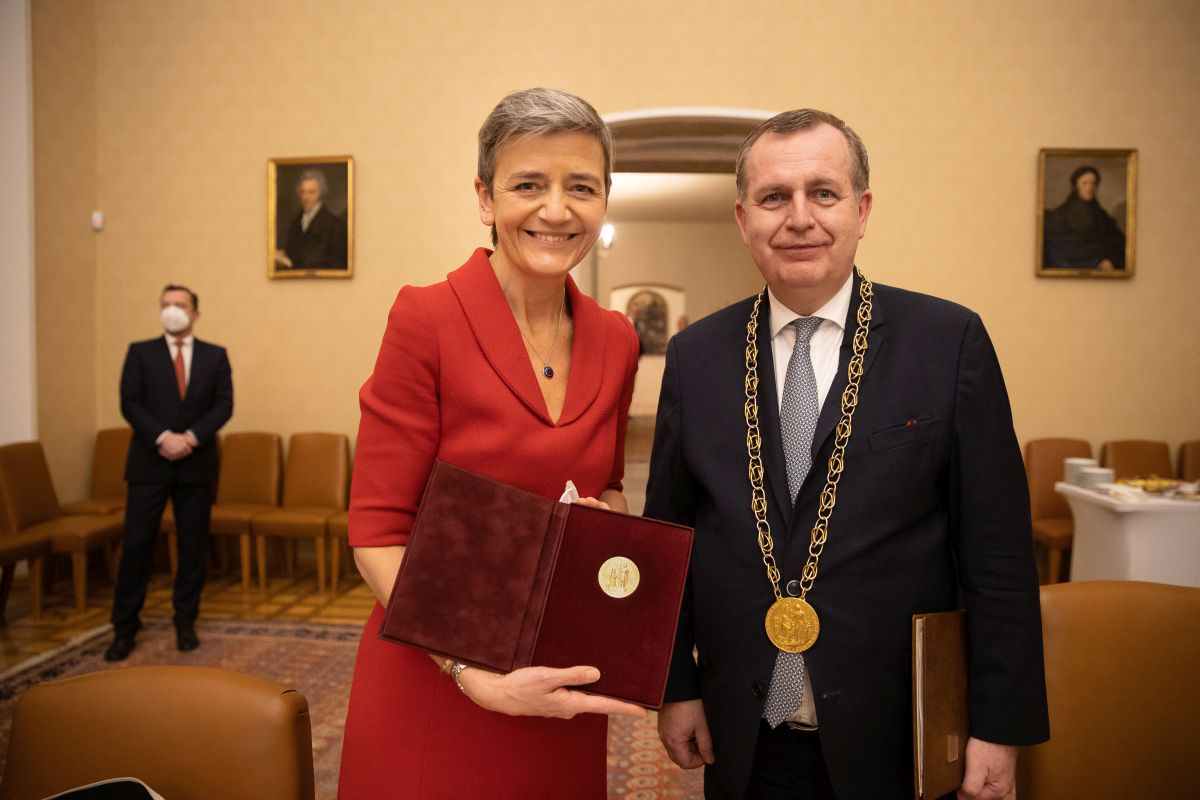
Displaying the gold medal of Charles University. Margrethe Vestager with CU Rector Tomáš Zima.
Forum: So it is an opportunity to be seized.
“Exactly. It also enables digitisation. There will be no fighting climate change without digitisation. Because with digital you can mark your resources, see how they recycle, you know where they are, how they have been used, how they can be re-used, how raw material can be used over and over again. So there are many new business opportunities opening, there are business models to be rethought as in ‘how do we want to make the most of our product by combining it with services or how to enter into new markets where digital services are needed to thrive in that economy. So the two work very well together and I hope that businesses see this and help each other. And that instead of looking at it and saying this is anti-competitive, to test us. And we’ll see how we can enable your corporation by cutting what would be anti-competitive but enabling what will allow you to work on the green and digital transition.”
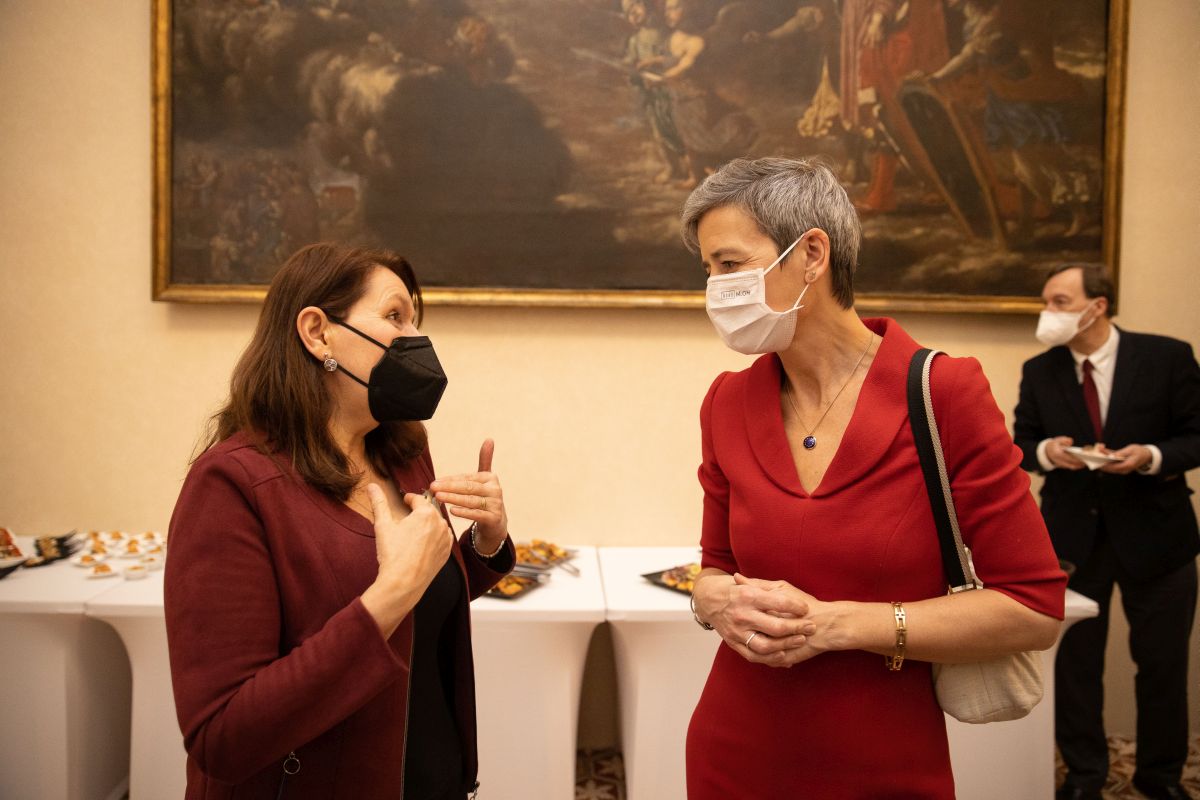
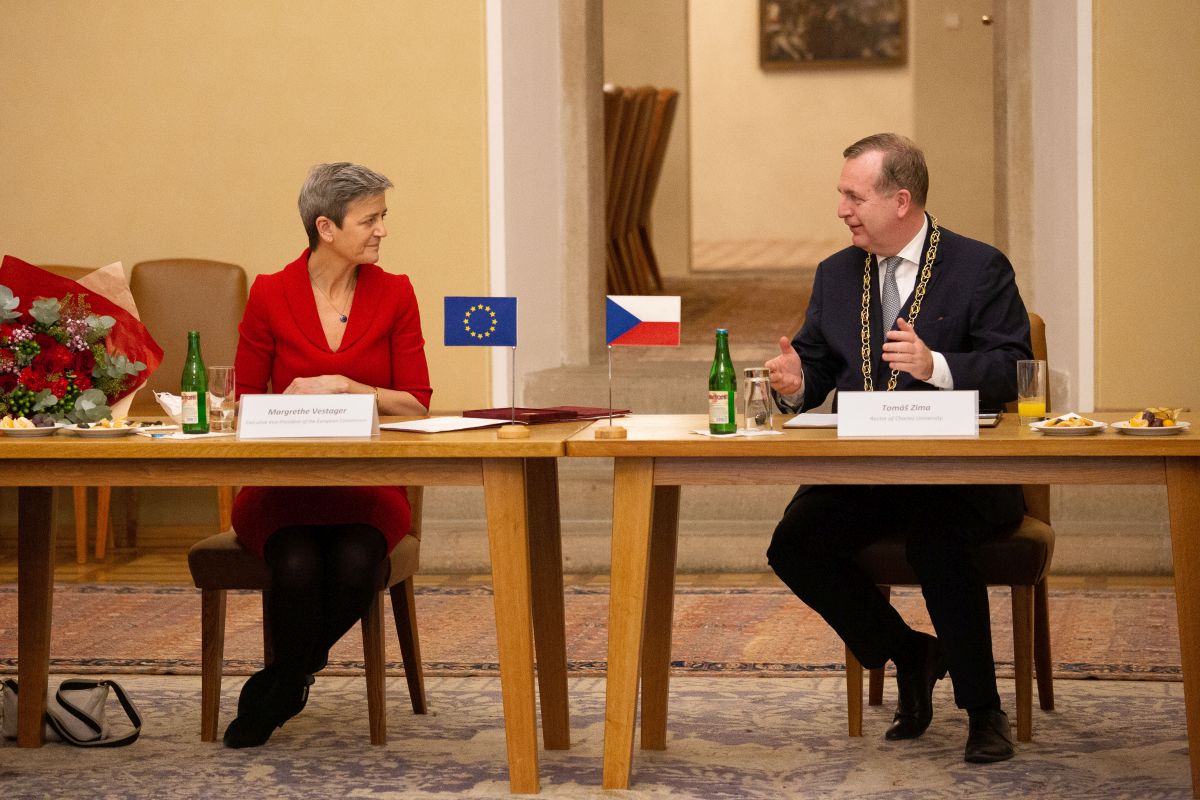
Margrethe Vestager converses with Rectress-elect Milena Králíčková. Right: In discussion with Rector Tomáš Zima on competition protection.


